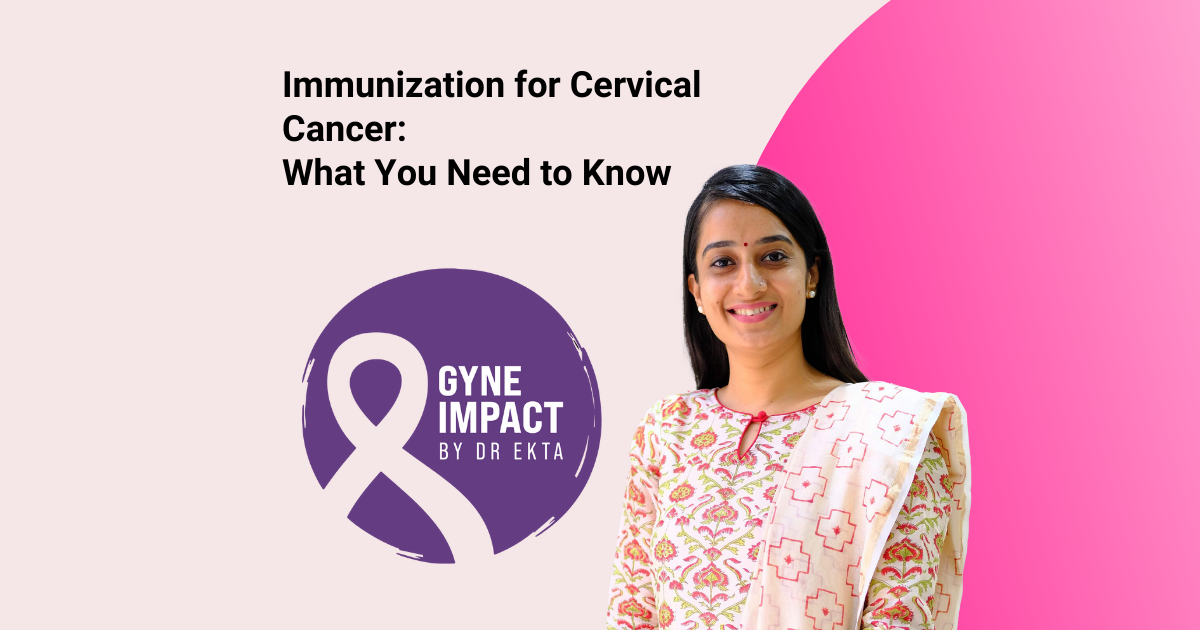As an oncologist, I often encounter patients who are concerned about cervical cancer and how to prevent it. One of the most effective preventive measures available today is immunization for cervical cancer. This blog is dedicated to shedding light on this crucial topic, providing insights into why this immunization is essential and how it can impact your health.
Understanding Cervical Cancer
Cervical cancer originates in the cells of the cervix, the lower part of the uterus that connects to the vagina. It is primarily caused by persistent infection with high-risk types of human papillomavirus (HPV). HPV is a common sexually transmitted infection, and while most infections clear up on their own, some can lead to cervical cancer over time.
The Role of Immunization for Cervical Cancer
Immunization for cervical cancer refers to vaccines designed to protect against the HPV types most commonly associated with the disease. These vaccines are a major advancement in cancer prevention and have been shown to significantly reduce the incidence of cervical cancer.
How Does the Vaccine Work?
The HPV vaccine works by stimulating the immune system to produce antibodies against specific types of HPV. When a person is vaccinated, their body is better prepared to fight off these virus types if exposed in the future. The vaccine does not treat existing HPV infections or cervical cancer but provides protection against new infections.
The Importance of HPV Vaccination
Immunization for cervical cancer is crucial for several reasons:
Prevention of Cervical Cancer: The primary benefit of the HPV vaccine is its ability to prevent cervical cancer. By protecting against the most common cancer-causing HPV types, the vaccine helps reduce the risk of developing cervical cancer.
Reduction of HPV Transmission: The vaccine also contributes to reducing the overall transmission of HPV in the population. As more people get vaccinated, the prevalence of the virus decreases, contributing to lower rates of cervical cancer and other HPV-related diseases.
Protection Against Other HPV-Related Cancers: While cervical cancer is the most well-known, HPV can also cause other cancers, including anal, oropharyngeal, and penile cancers. Immunization for cervical cancer provides broader protection against these HPV-related malignancies.
Who Should Get Vaccinated?
The HPV vaccine is recommended for both males and females. Ideally, vaccination should occur before the onset of sexual activity, but it can be administered at any age. The Centers for Disease Control and Prevention (CDC) recommends the following:
Adolescents: The vaccine is most effective when given to preteens aged 11-12, but it can be administered as early as 9 years old. This early vaccination ensures that individuals are protected before they become sexually active.
Young Adults: For those who missed the vaccination during their preteen years, the vaccine is still beneficial for young adults up to age 26. In some cases, individuals up to age 45 may also benefit from vaccination, depending on their health status and sexual activity.
Vaccine Schedule and Dosing
The HPV vaccine is typically administered in a series of doses. For the most common vaccine series:
For ages 9-14: Two doses are given 6-12 months apart.
For ages 15 and older: Three doses are given over a 6-month period.
It is important to follow the recommended dosing schedule to ensure maximum effectiveness.
Addressing Common Concerns
As with any medical intervention, there are questions and concerns about the HPV vaccine. Here are some common queries I encounter and my responses:
Is the HPV vaccine safe? Yes, the HPV vaccine has undergone rigorous testing and has been proven to be safe and effective. Common side effects are mild and may include pain at the injection site, fever, or dizziness. Serious side effects are rare.
Does the vaccine guarantee that I will never get cervical cancer? While the vaccine significantly reduces the risk of cervical cancer, it does not eliminate all risk. Regular cervical cancer screenings, such as Pap smears or HPV tests, remain important for monitoring and maintaining cervical health.
Can the vaccine be given during pregnancy? It is generally recommended to avoid vaccination during pregnancy. If a person becomes pregnant after starting the vaccine series, they should complete the series after delivery.
The Impact of Immunization for Cervical Cancer
The introduction of the HPV vaccine has had a profound impact on public health. Countries with high vaccination rates have observed significant declines in cervical cancer rates and HPV infections. This success underscores the importance of widespread vaccination and the potential for global cancer prevention.
Encouraging Vaccination
As an oncologist, I urge everyone to consider the benefits of immunization for cervical cancer. Vaccination is a powerful tool in our fight against cancer and can prevent countless cases of cervical cancer and other HPV-related diseases. If you or your loved ones have not yet received the HPV vaccine, I encourage you to speak with your healthcare provider to discuss its benefits and determine the best vaccination plan.
Conclusion
Immunization for cervical cancer is a crucial step in preventing a serious and potentially life-threatening disease. By understanding the role of the HPV vaccine, its benefits, and addressing common concerns, you can make informed decisions about your health and the health of your loved ones. As we continue to advance in medical science, the HPV vaccine remains one of the most effective measures we have to protect against cervical cancer and improve overall public health.
If you have any questions or need further information, please do not hesitate to reach out to your healthcare provider. Together, we can work towards a future with fewer cases of cervical cancer and a healthier population.

